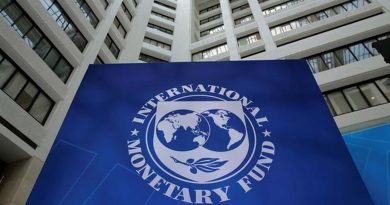MRV systems crucial for unlocking climate finance
ISLAMABAD: Experts on Wednesday underscored that amid mounting climate challenges and a tightening global regulatory landscape, Pakistan must accelerate its efforts to establish a robust carbon market framework to secure its place in the international climate finance ecosystem.
The stakeholders made these remarks at the workshop titled “Enhancing Carbon Market Readiness in Pakistan,” organized by the Sustainable Development Policy Institute (SDPI), said a press release.
Delivering the opening remarks, Dr. Sajid Amin Javed, Deputy Executive Director (Research) at SDPI, emphasized that carbon markets are rapidly emerging as a key tool for climate finance, backed by both national ownership and global momentum. “Pakistan must embed carbon policy into its broader fiscal strategy,” he stressed. “We need to adopt a futuristic approach to climate financing, as traditional avenues will shrink over time.”
Dr. Irfan Yousuf, CEO of Climate Action and Policy Initiative, delivered a comprehensive keynote on “MRV as an Enabler for Climate Investment and Finance Readiness.” He emphasized that robust MRV systems form the backbone of transparent climate action financing and are essential for building trust, credibility, and investor confidence.
“MRV not only tracks greenhouse gas emissions but supports planning, accountability, and compliance. Countries with strong MRV frameworks can better absorb and mobilize climate finance,” Dr. Irfan remarked.
He explained that the MRV process begins with data collection on emissions or mitigation activities, followed by reporting in standardized formats, and finally independent verification to ensure accuracy and reliability. He cited the Ghana Integrated MRV System as a model that successfully aligned emissions tracking with decision-making, finance mobilization, and investor engagement.
Engineer Ubaid ur Rehman Zia, Head of Energy Unit at SDPI, highlighted the intensifying competition in global carbon markets and Pakistan’s recent policy moves such as the imposition of a carbon levy on diesel and petrol in the federal budget. “Pakistan’s industry must reduce its carbon footprint to stay competitive amid mechanisms like the EU’s Carbon Border Adjustment Mechanism (CBAM),” he said.
Ubaid Zia in his detailed presentation outlined the structure and functioning of both compliance and voluntary carbon markets, stressing that while compliance markets are government-mandated and valued at $270 billion, voluntary markets—though smaller at $0.4 to $1 billion—are set to grow exponentially. Pakistan’s Carbon Markets Policy, approved by the federal cabinet, is designed to facilitate participation in both, he added.
Pakistan, he said has identified high-potential sectors for carbon credit generation, including Transport – electric mobility and mass transit systems, Industry – energy efficiency, emission baselines, Agriculture and Land Use – agroforestry and methane reduction, Energy – improved cookstoves, renewable transmission, waste-to-energy and Green Hydrogen and
Ammonia – emerging frontiers.
Dr. Zainab Naeem, SDPI’s Head of Ecological Sustainability, stressed that carbon markets offer a viable alternative financing mechanism amid increasing climate-induced disasters. She underscored the importance of integrating environmental sustainability into macroeconomic planning and building a homegrown sustainability industry that includes circular economy and permaculture models.
She added that Pakistan requires an estimated $348 billion in climate finance between 2023 and 2030, with at least
$7 billion needed for climate adaptation alone. So far, the country has received only $1.4–$2 billion annually in climate finance, she said.
Experts from Verra and Resources Future Pvt. Ltd. elaborated on the technical processes of carbon project validation and the pivotal role of carbon registries, which ensure transparency, credibility, and prevent double counting. Win Sim Tan of Verra noted that a Project Description Document (PDD) is essential for registration.
Rehman Yousuf discussed a live carbon finance project involving agroforestry in Sindh’s Mirpur Khas district, emphasizing scalability and the importance of following global validation standards.
Bulent Sohail, legal expert and Managing Partner at Sohail & LLP, raised concerns about regulatory and institutional readiness. “The market is ready, and there is capital,” he noted, “but a lack of regulatory clarity and stakeholder coordination is holding back investment.”
He pointed to the State Bank’s ongoing work on green taxonomy as a positive step but urged synchronized action across ministries and departments. “To meet the 2030 Nationally Determined Contribution (NDC) targets, we must develop a legal and financial ecosystem that can support scalable investments.”
Concluding the workshop day one, Saleha Qureshi, Head of Pakistan Industrial Decarbonization Program, SDPI, announced the next session in the series would focus on Monitoring, Reporting, and Verification (MRV) systems—a vital component of any credible carbon market.
She said the event marked a significant step in raising awareness, building capacity, and bridging knowledge gaps in Pakistan’s journey toward establishing a functional and credible carbon market that can unlock global finance and accelerate climate action.
The second day of the Workshop focused on the critical role of Measurement, Reporting, and Verification (MRV) systems in enhancing transparency, attracting climate finance, and strengthening national preparedness for carbon markets.
Saleha Qureshi provided an overview of the evolving trends in global carbon markets, highlighting the relevance for countries like Pakistan. She stressed that carbon markets remain one of the most affordable and cost-effective tools for reducing emissions, with co-benefits for sustainable development.
Qureshi added that Pakistan is in the process of developing its national carbon registry and MRV system, finalizing Article 6 bilateral frameworks, and launching capacity-building initiatives. She noted that recent updates by VERRA including methodologies for rice methane reduction and biochar present new areas for exploration.
Ubaid ur Rehman Zia informed participants that the Institute is developing a guidebook to demystify carbon markets and promote wider understanding. Nisma Rizwan introduced the booklet titled “Decoding Carbon Markets: A Simple Guide to Understanding and Engaging in Carbon Trading”, which offers a comprehensive overview of emission trading systems and
project participation for diverse stakeholders.
The two-day workshop concluded with a vote of thanks by Shakeb Elahi, Senior Advisor SDPI, acknowledging the contributions of speakers, participants, and partner organizations. He emphasized the importance of continued collaboration, policy innovation, and stakeholder engagement to help Pakistan transition into a credible and efficient carbon market economy.–NNI



